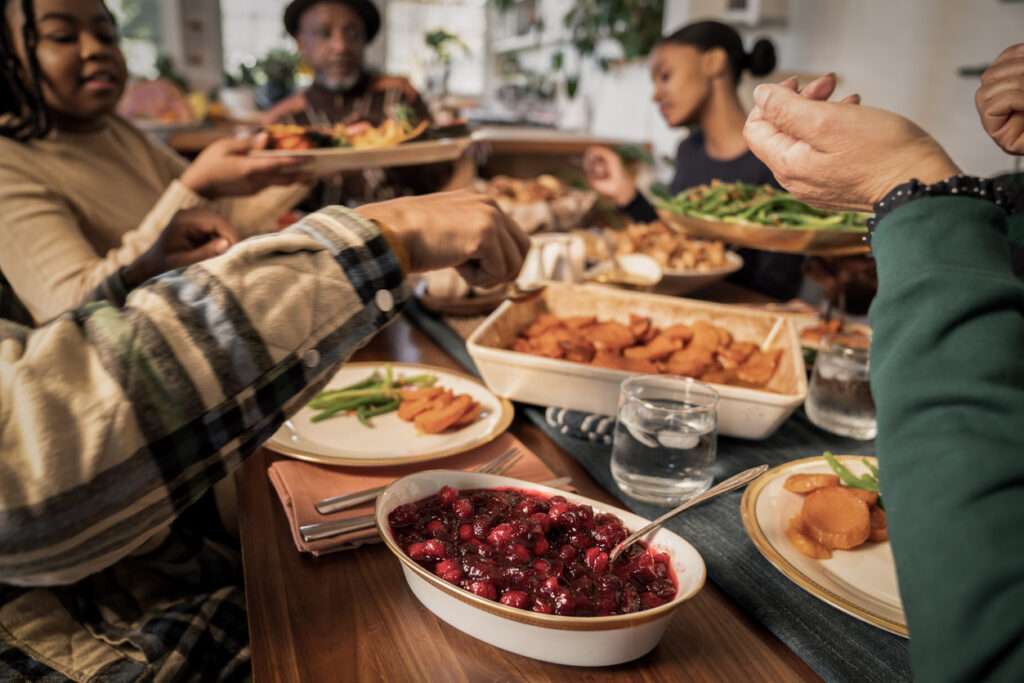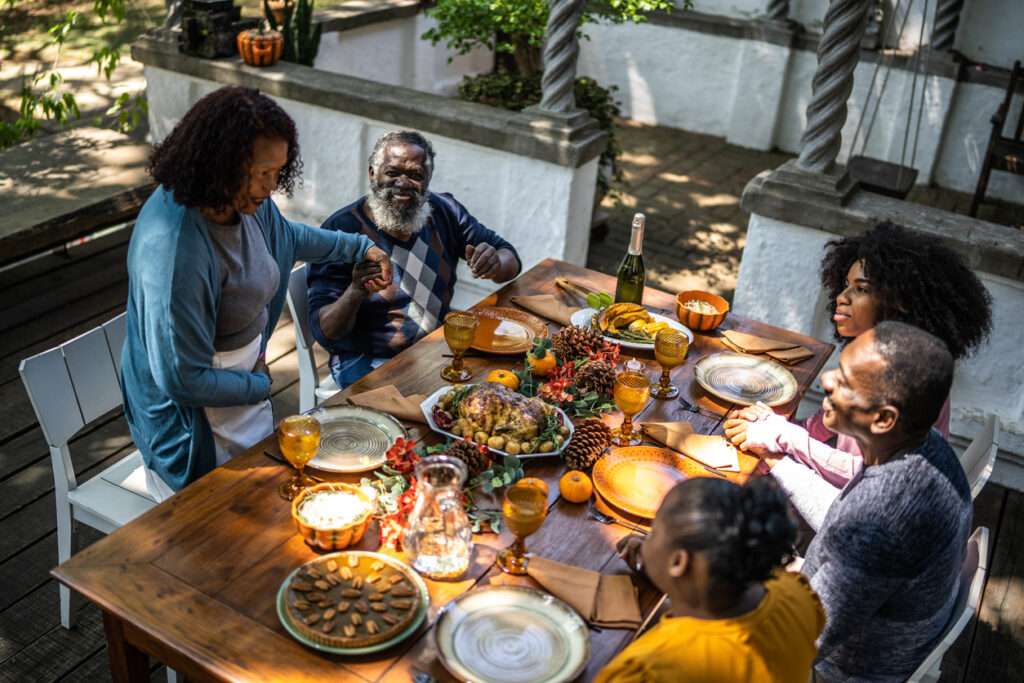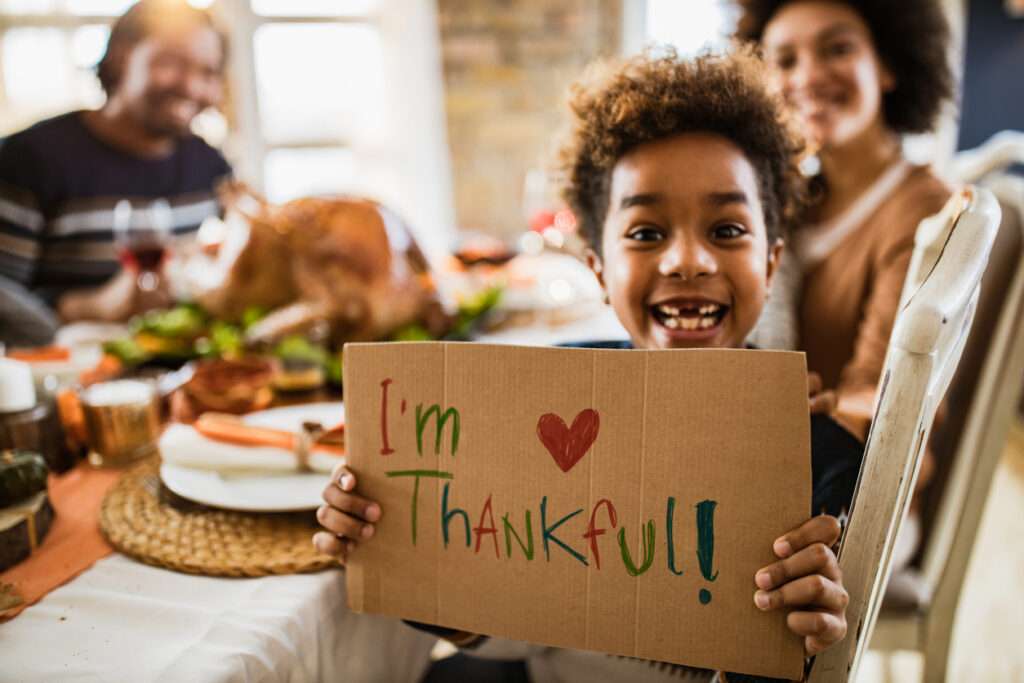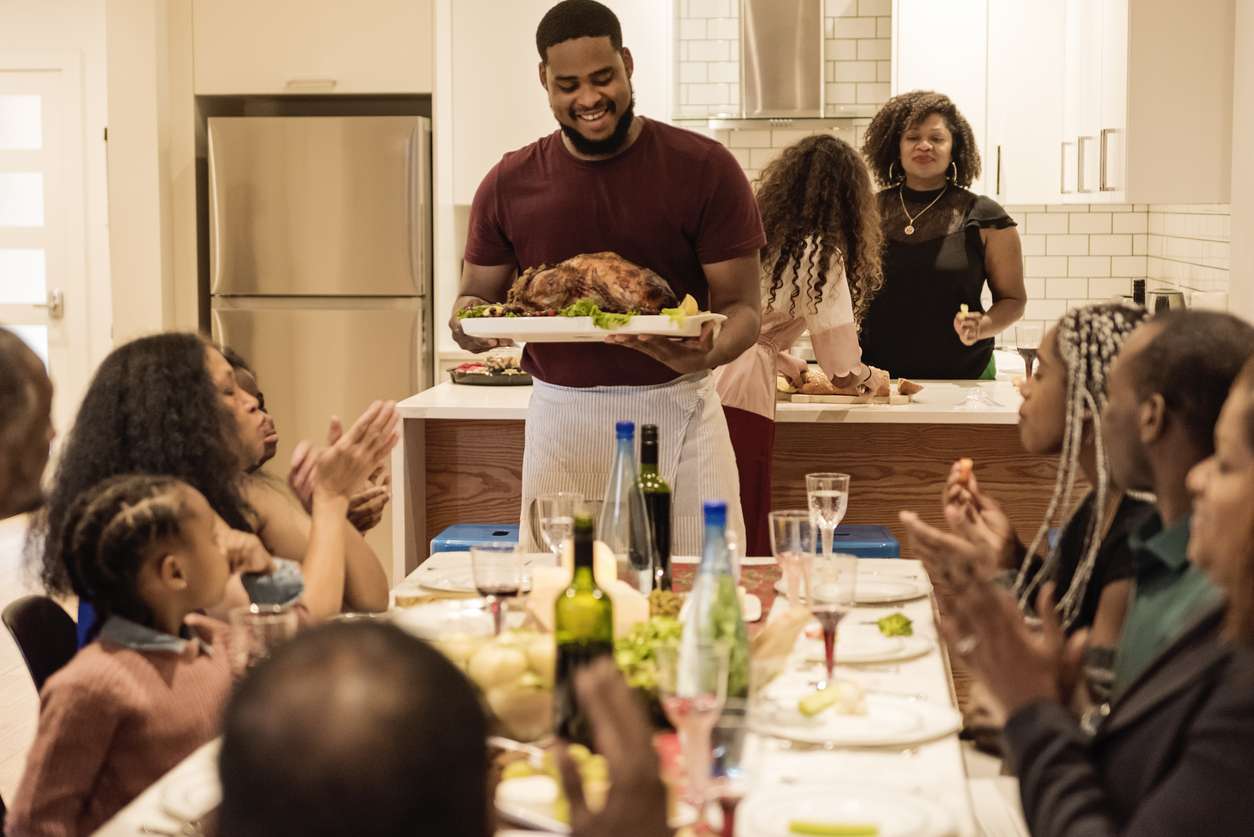This is the season of giving thanks, and Thanksgiving, a popular American holiday, has a rich history that transcends its origins as a colonial harvest festival.
For the Black community, the holiday represents far more than turkey and cranberry sauce; it is a time to reflect on resilience, unity, and cultural identity. The popularity of this holiday among African Americans is rooted in a blend of historical, cultural, and communal traditions that have evolved over the years (Blight, 2001).

Thanksgiving During Enslavement
In the early days of Thanksgiving, the holiday was not directly celebrated by enslaved Africans. However, food and gathering—central elements of the holiday—played a vital role in enslaved communities. Despite harsh conditions, our ancestors used communal meals as an opportunity to celebrate survival, preserve their heritage, and find moments of joy (Raboteau, 2004). These gatherings often mirrored the collective spirit that Thanksgiving embodies today.
As enslaved Africans adopted Christianity, they connected Thanksgiving to biblical themes of deliverance and gratitude, incorporating these values into their own celebrations (Williams, 2005). Though they were excluded from formal holiday observances, they found ways to honor the spirit of Thanksgiving through prayer, storytelling, and sharing food. The creativity further shows the resilience of the Black community, no matter the limitations that were put on them.
The Role of Freedmen and Post-Civil War Traditions
After the Civil War and emancipation, Thanksgiving became a symbol of freedom for many newly freed African Americans. In the post-Reconstruction South, Black churches began to incorporate Thanksgiving into their worship services, emphasizing gratitude for freedom, family, and faith (Blight, 2001). These gatherings often included “potluck” meals, where community members brought their best dishes to share—a tradition that remains a cornerstone of Black Thanksgiving celebrations.
During this period, Thanksgiving also became a time for African Americans to assert their cultural identity. Food, a powerful symbol of heritage, played a critical role. Dishes like sweet potatoes, greens, and cornbread—adapted from African and Southern cuisines—became staples at Thanksgiving tables, blending African culinary traditions with American customs (Opie, 2008).
The Great Migration and Cultural Expansion
The Great Migration (1916–1970) brought millions of African Americans from the rural South to urban centers in the North and West. As they settled into new communities, Thanksgiving became a way to maintain ties to Southern roots while adapting to new environments (Wilkerson, 2010). In cities like Chicago, Detroit, and New York, Black families gathered around Thanksgiving tables to celebrate not just the holiday but their collective survival and progress.
It was during this time that Thanksgiving evolved into a communal celebration. Churches, civic organizations, and even jazz clubs hosted Thanksgiving events, turning the holiday into a platform for both reflection and social connection (Lemann, 1992).

Modern-Day Significance
Today, Thanksgiving in the Black community is deeply tied to family and culture. The holiday is marked by expressions of gratitude, but it also serves as a celebration of Black excellence, history, and survival. Soul food, rooted in African American traditions, takes center stage, with dishes like mac and cheese, collard greens, and candied yams showcasing the community’s creativity and culinary brilliance (Miller, 2013).
In addition, Thanksgiving has become a time for storytelling, where elders pass down family histories, and traditions are reaffirmed. It’s a holiday where spirituality and culture intersect, with prayers of thanks and acknowledgment of collective struggles and triumphs (Hargrove, 2021).

Thanksgiving’s popularity in the Black community is a testament to our ability to redefine and reclaim traditions. From its painful roots in enslavement to its current role as a day of family, faith, and cultural pride, Thanksgiving reflects the resilience and adaptability of African Americans. It is more than a meal; it is a celebration of identity, community, and the enduring spirit of gratitude.
Works Cited
– Blight, David W. Race and Reunion: The Civil War in American Memory. Belknap Press, 2001.
– Hargrove, Channing. “How Black Families Celebrate Thanksgiving: More Than Just a Meal.” Refinery29, 2021.
– Lemann, Nicholas. The Promised Land: The Great Migration and How It Changed America. Vintage, 1992.
– Miller, Adrian E. Soul Food: The Surprising Story of an American Cuisine, One Plate at a Time. University of North Carolina Press, 2013.
– Opie, Frederick Douglass. Hog and Hominy: Soul Food from Africa to America. Columbia University Press, 2008.
– Raboteau, Albert J. Slave Religion: The “Invisible Institution” in the Antebellum South. Oxford University Press, 2004.
– Wilkerson, Isabel. The Warmth of Other Suns: The Epic Story of America’s Great Migration. Random House, 2010.
– Williams, Heather Andrea. Self-Taught: African American Education in Slavery and Freedom. University of North Carolina Press, 2005.








